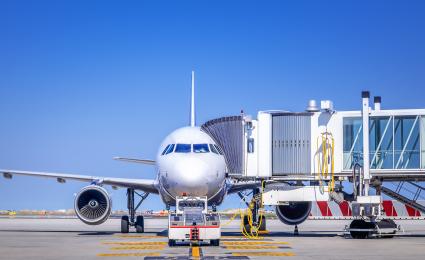Aviation companies must transform their business in order to survive. We identify key strategies and success levers for the transformation journey.


Aerospace: Building resilient supply chains
By Stephan Baur
Overcoming disruption to meet ramp-up targets and ensure a stable sustainable growth
Roland Berger, in collaboration with the aerospace industry associations of France, Germany and the United Kingdom (BDLI, GIFAS and ADS), presents the latest findings in “Aerospace supply chain: Resilience Report 2024” (available to download on this page). We find that the industry is still struggling under the weight of the ongoing series of global and localized crises, such as the US/China trade war, the Russia/Ukraine crisis and an increasing frequency of cyberattacks. Bottlenecks are hampering ramp-up targets the severity of supply disruption is worsening and few companies are able in this environment to build up a resilient supply chain.
To address this, our latest study outlines a series of measures to build resilience in the supply chain.

"A lot of aerospace suppliers have not yet sufficiently adapted their supply chain structures to efficiently manage the ongoing supply-chain disruptions and to avoid future crises."
Disruption remains high
The aim of the study was to analyze 1) the readiness of the aerospace companies to deliver the planned rate ramp up, 2) the resilience of the aerospace supply chain and plans to improve, 3) operational and strategic implications of new regulatory requirements, and 4) strategic considerations from the current geopolitical situation and next-generation aircraft.
Regarding rate ramp up, the study found that at least one in three companies are not ready for the planned production ramp-up due to one or several reasons. More than 60% of survey respondents, mainly Tier 1 and lower, said they were missing personnel resources, while 40% are lacking financial resources.
Supply-chain disruption was another major headache, with the great majority of respondents – 66% – still experiencing some level of supply-chain disruption. Increased lead times and limited material availability were key contributing factors.
_image_caption_none.png)
Compared to 2023, where we already asked the same questions to the companies in the aerospace supply chain, the average disruption level remained broadly flat, with only a slight increase. However, the share of companies facing very severe disruptions increased significantly (from 2 to 11%), due to unreliability of supplies. Tier-1 suppliers were the company type worst affected by severe disruption, while aerostructures was the worst affected procurement category.
"Aerospace suppliers must overcome firefighting and task forces and build more resilient supply chain set-ups to overcome future uncertainties."
Too little action
So what are aerospace companies doing to address the disruption? In our 2023 study, we outlined three stages of response to supply-chain disruption – firefighting, stabilization and supply-chain resilience – and asked survey participants to rate their company’s level. We posed the question again in 2024. We found that 38% of companies are still in firefighting mode (8% more than in 2023), indicating continued challenges and instability. More positively, almost a third of respondents considered their company to be at the resilient supply chain stage, 6% more than in 2023. We see therefore that some companies have successfully achieved supply chain resilience in the last year, while companies which have not focused on adjusting their supply chain (e.g., network, organization, etc.) are facing even more severe challenges. In our study we have also outlined which measures companies have taken during the last year in order to successfully build this resilience.
As in 2023, survey participants were asked to rate their supply chain maturity. The overall level of maturity remained low, with almost no improvement on 2023’s results. Transparency was again a particular weak point. The assessment suggests that companies have not made any major changes to supply-chain structures in the past year, helping to explain the severity of current supply-chain disruptions.
_image_caption_none.png)
While companies clearly need to change their supply-chain strategy, when asked if they had changed their set-up in the past 2-3 years or intend to do so in the next 2-3 years, less than half of the companies involved in our survey said yes. Regulatory challenges, especially around sustainability, were a key reason for inaction. Of those that have adapted strategy, localization of supply chains was a popular remedy – however only 23% of all surveyed companies are yet building on a global setup with parallel localized supply chains.
The full report offers a wealth of detailed survey results not covered here, as well as deeper analysis around the key issues. It also provides an actionable set of conclusions and recommendations for aerospace players on how to limit disruption and improve resilience, based mainly around transparency, best practices and localization. For more details, please download a copy of the report or contact one of our experts.
Register now to access the full study, to learn more about challenges faced by the aerospace industry in meeting ramp-up targets.



_tile_teaser_w425x260.jpg)


